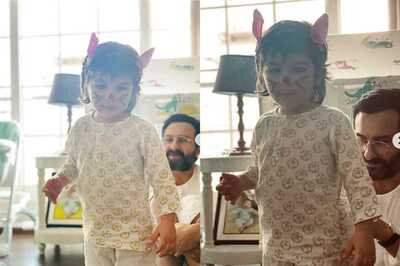
views
AIMIM Chief Asaduddin Owaisi on Sunday talked about the status of women in Islam and taught men that there is no manhood in venting out their anger on their wives but there is in tolerating her anger.
In a video message shared by his party on social media, Owaisi can be seen addressing a gathering where he emphasises the status and role of women in Islam and urges men to be respectable towards their wives.
Islam mein khawateen ka maqaam#AIMIM #AsaduddinOwaisi #Islam #HonourWoman #WomenPower #Majlis #Hyderabad #Telangana #India pic.twitter.com/zkDu9FDHEO— AIMIM (@aimim_national) February 4, 2024
“I have said this several times and many people don’t like me for saying this but the Quran does not command your wife to wash your clothes or cook for you or give you a head massage. It says the husband has no right to his wife’s earnings. But, the wife has the right to the husband’s earnings because she has to run the household,” Owaisi can be heard saying in the video.
The Hyderabad leader also said that some men criticize their wives for not cooking standard food or find faults in food but none of this is a part of Islam.
“My brothers, this is Islam. It is not (written anywhere). And then some are cruel to their wives, who hit them. If you are true followers of the Prophet, tell me where he has laid his hands on a woman,” Owaisi added.
“There is no manhood in unnecessarily venting your anger on your wife or taking swipes at her. Manhood is tolerating her anger,” he said.
To explain the importance of respect in marital bonds, the AIMIM leader also narrated the story of Rasul, who approached the influential caliph, Farooq e Azam, seeking advice on dealing with his angry wife.
According to the anecdote, Rasul visited Farooq e Azam’s home and was surprised to witness his own complaint being directed at the caliph by his own wife. In response, the wise caliph emphasized the significance of his wife’s role in safeguarding their home’s honour, nurturing their children, and being a human being with emotions. He encouraged Rasul and others to develop a mindset of listening and understanding in such situations.


















Comments
0 comment